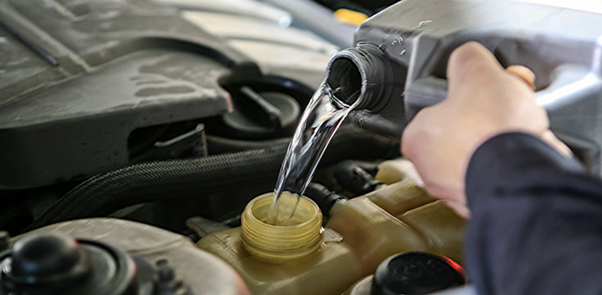Professional mechanics have seen it all – from cars barely limping past 100,000 miles to remarkable vehicles cruising effortlessly beyond 300,000 miles. What’s their secret? Years of hands-on experience have taught them that extending a car’s lifespan isn’t about expensive upgrades or complex modifications. Instead, it’s about understanding your vehicle’s needs and establishing consistent care routines that prevent problems before they start.
Breaking the 200,000-Mile Barrier
Most modern vehicles are built to last well beyond 200,000 miles, yet many fall short of this milestone. The difference often lies not in the manufacturing quality but in the owner’s approach to maintenance and driving habits. Master mechanics consistently observe that vehicles reaching exceptional mileage share common care patterns established early in their lifespans.
The Golden Hour: Why Morning Routines Matter
Professional mechanics emphasize the critical importance of how you start your car, especially during cold weather. Allowing your engine to warm up properly doesn’t mean extended idling – rather, it means gentle driving for the first few minutes. This simple habit allows oil to reach optimal temperature and properly lubricate all engine components, potentially adding years to your engine’s life.
Understanding Your Engine’s Language
Experienced mechanics stress the importance of becoming attuned to your vehicle’s normal sounds and behavior. Every car develops its own “personality” – unique vibrations, sounds, and operating characteristics. Learning these patterns helps you identify potential issues before they become serious problems. That subtle change in engine noise or slight vibration during acceleration might be your car communicating an emerging issue.

Fluid Dynamics: The Lifeblood of Longevity
Oil changes might seem basic, but master mechanics reveal that proper oil maintenance involves more than just regular changes. The type of oil used, the driving conditions, and even the time between changes can significantly impact engine life. Synthetic oils, while more expensive, often provide superior protection and can actually save money over time by reducing engine wear.
Beyond just engine oil, other fluids play crucial roles in your vehicle’s longevity. Transmission fluid, coolant, brake fluid, and power steering fluid each require specific attention and maintenance schedules. Professional mechanics often see expensive repairs that could have been prevented with proper fluid maintenance.
The Timing Belt Tale
One of the most critical yet often overlooked components is the timing belt. Master mechanics have countless stories of engines destroyed because owners stretched their timing belt replacement intervals too far. While replacement can be expensive, it’s a fraction of the cost of engine repair or replacement. Many mechanics recommend checking the belt’s condition at 60,000 miles and replacing it preventively rather than waiting for the manufacturer’s recommended interval.
Transmission: The Unsung Hero
Automatic transmissions often fail prematurely due to neglect. Professional mechanics emphasize that regular transmission fluid changes are crucial, even if the manufacturer claims the fluid is “lifetime.” Heat is the enemy of transmission fluid, and regular changes help prevent the devastating internal damage that occurs when fluid breaks down. Many mechanics have seen transmissions last well beyond 200,000 miles with proper maintenance.
Suspension Secrets
Your car’s suspension system does more than provide a comfortable ride – it affects alignment, tire wear, and overall vehicle stability. Master mechanics recommend regular inspection of suspension components, particularly after driving on rough roads or hitting potholes. Early detection of worn bushings, shock absorbers, or ball joints can prevent more extensive damage and ensure even tire wear.
The Cooling System Chronicles
Engine overheating remains one of the leading causes of catastrophic engine failure. Professional mechanics stress the importance of maintaining the cooling system, including regular coolant changes and pressure testing of the radiator cap. A properly maintained cooling system helps ensure consistent engine temperatures, reducing wear and preventing warped heads or blown head gaskets.
Electrical System Excellence
Modern vehicles rely heavily on electrical systems, and master mechanics have noticed an increase in electrical-related failures. Regular battery maintenance, including cleaning terminals and checking voltage, helps prevent cascade failures where one electrical problem leads to another. They also recommend addressing check engine lights promptly, as minor electrical issues can escalate into major problems if ignored.
Brake System Brilliance
Professional mechanics emphasize that brake maintenance goes beyond just replacing pads. Regular brake fluid changes prevent internal corrosion of brake components, while proper pad replacement timing prevents rotor damage. They’ve seen countless examples where skimping on brake maintenance led to expensive repairs that could have been avoided.
The Paint Protection Paradigm
While it might seem purely cosmetic, master mechanics know that maintaining your car’s paint and exterior protects against rust and corrosion that can compromise structural integrity. Regular washing, waxing, and prompt attention to paint chips or scratches prevents rust from taking hold and spreading beneath the surface.
The Power of Documentation
Every master mechanic emphasizes the importance of maintaining detailed service records. Beyond helping track maintenance intervals, good documentation helps identify patterns and potential issues before they become serious problems. It also significantly increases resale value by providing evidence of proper care.
Professional Inspection Perspectives
While regular maintenance can be performed by conscientious owners, professional mechanics recommend annual comprehensive inspections. Their trained eyes can spot developing issues that might not be apparent to owners, allowing for preventive maintenance rather than reactive repairs.
Technology’s Role in Longevity
Modern vehicles incorporate sophisticated monitoring systems, and master mechanics recommend learning to use these tools effectively. Understanding your vehicle’s onboard diagnostics and maintaining software updates helps prevent problems and ensures optimal performance.
The Environmental Impact
Professional mechanics note that well-maintained vehicles not only last longer but also maintain better fuel efficiency and produce fewer emissions. This environmental benefit comes with the added advantage of reduced fuel costs over the vehicle’s extended lifespan.
Creating Your Maintenance Strategy
Master mechanics consistently advise developing a personalized maintenance strategy based on your specific vehicle, driving conditions, and usage patterns. This might mean more frequent service intervals than the manufacturer recommends, but the investment pays off in extended vehicle life and reduced repair costs.
The journey to 300,000 miles isn’t achieved through any single action but through a combination of consistent care, attention to detail, and preventive maintenance. By following these insights from master mechanics, you’re not just maintaining a vehicle – you’re investing in its future, potentially saving tens of thousands of dollars in premature replacement costs while enjoying reliable transportation for years to come.
















Add Comment